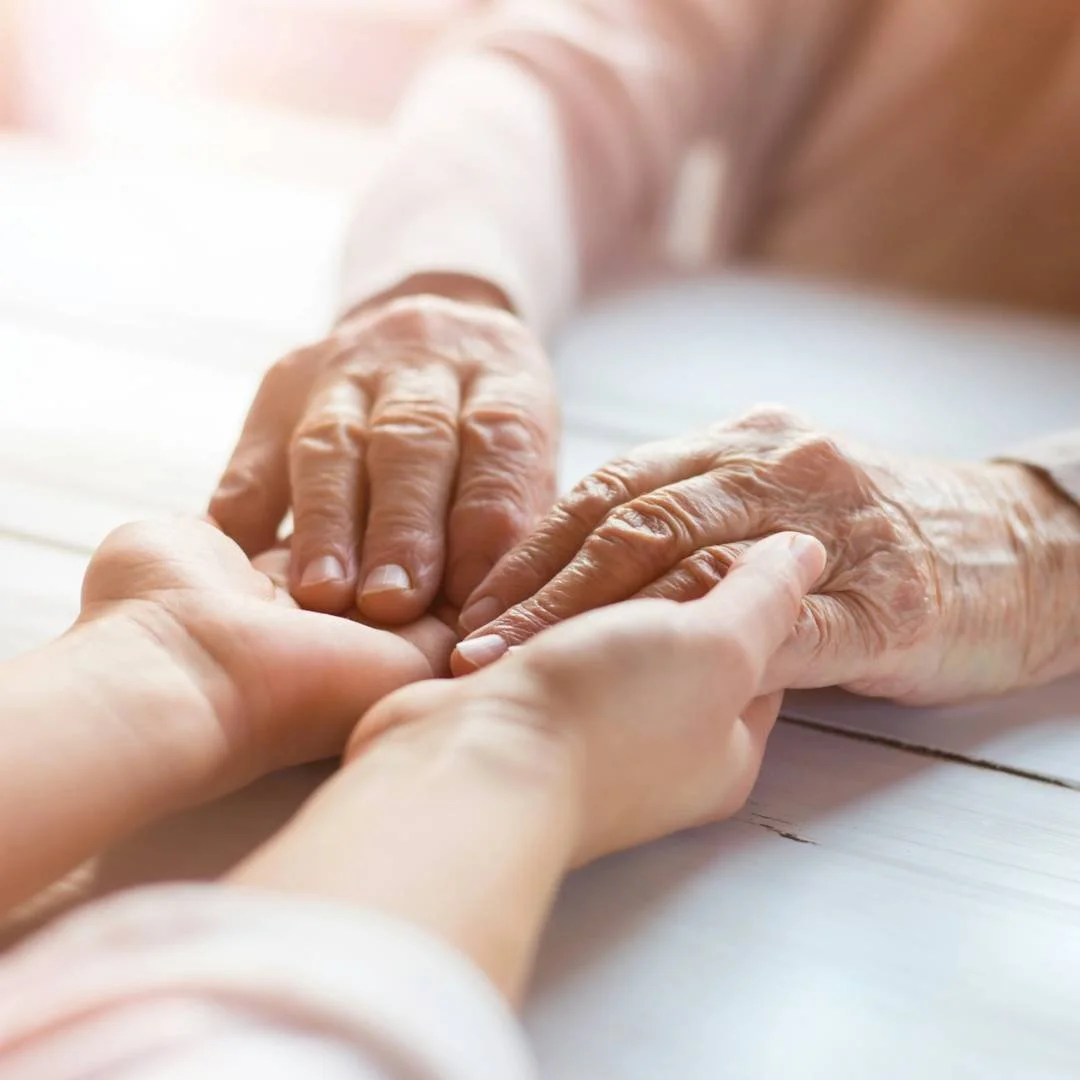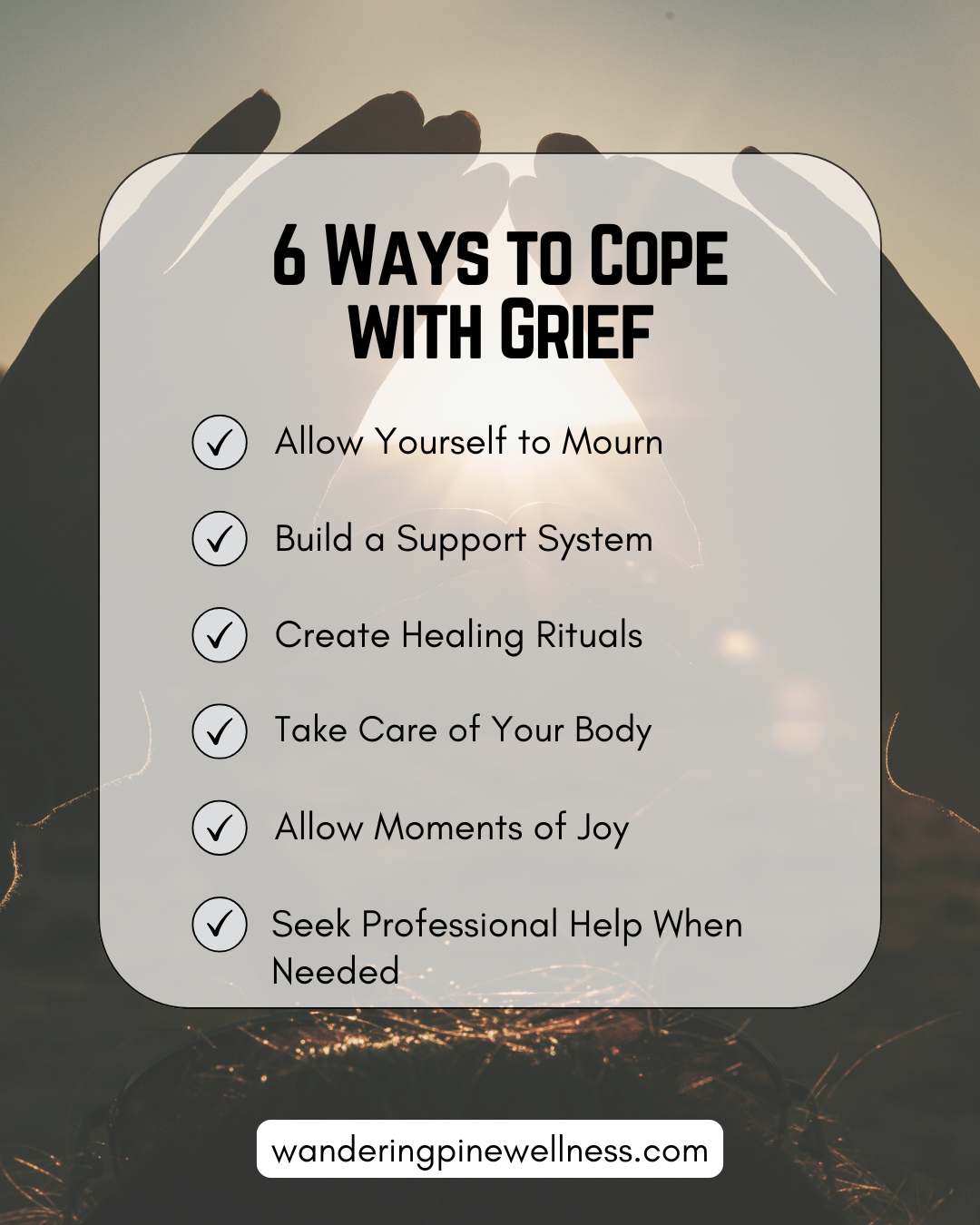6 Ways to Cope with Grief
By Alexis Montes, Gina Romero, Belton Hogue • Updated October 2025 • Las Vegas, NV
Understanding the Grief Process
Grief is a common emotional response to a significant loss. The “process of grieving” is the emotional process that individuals experience following a loss and can feel sad, angry, confused, and accepting. Everyone processes grief in different ways and at different paces.
While we often associate "grief" with the loss of a loved one, we can experience grief for any type of loss. This might include the loss of a relationship, job loss, or even the loss of a version of our life.
If you’re struggling to identify or make sense of your grief, connecting with a therapist in Las Vegas can provide clarity, compassion, and tools for healing.
Practical Ways to Deal with Grief
The following are healthy, constructive ways to cope with grief while fostering healing:
1. Allow Yourself to Mourn
Give yourself permission to feel intensely. Loss combines adaptive emotions during grief, and none are “wrong.” Allow yourself to grieve without shame, guilt, or need to “get over” it.
2. Build a Support System
Research shows that people who have strong emotional support during times of loss experience more adaptive grieving. Sharing your feelings with others lightens the emotional load and reminds you that you are not alone.
If you’re in Las Vegas, you might also consider adding a trained therapist to your support system.
3. Create Healing Rituals
Therapeutic rituals can bring comfort, structure, and meaning to mourning. Try journaling your memories, lighting candles, creating a memory box, or honoring anniversaries. These practices can help keep loved ones’ memories alive while giving you a sense of stability.
4. Take Care of Your Body While Mourning
Grief affects both the mind and body. You might notice changes in sleep, appetite, or physical tension. Support your body with proper nutrition, hydration, gentle exercise, and rest. Physical care supports emotional recovery.
5. Allow Moments of Joy
Allow moments of pleasure and joy to coexist with grief. Experiencing laughter, pleasure, or moments of happiness does not mean you are forgetting your loss; it means you are healing. Balance sadness with moments of lightness and gratitude when they come.
6. Seek Professional Help When Needed
Certain losses are too great to bear alone. When sadness is too great to bear, consider grief counseling or therapy for grief. Consider grief counseling or therapy in Las Vegas.
Therapies such as Acceptance and Commitment Therapy (ACT) can help you process loss while developing self-awareness and emotional resilience.
Finding Peace in the Process: Learning to Heal and Move Forward After Loss
It’s common to feel “stuck” in grief or wonder, “Why am I still grieving?” after a loss. Milestones like birthdays, anniversaries, and holidays can reignite emotions, bringing back sadness, guilt, or even fear that you’re forgetting your loved one. Grief doesn’t follow a linear path. Some people are able to resume their “normal” activities shortly after a loss, and others need (wand want!) more time. During this time, it’s important to ground yourself in the present through healthy coping practices. Mindfulness, deep breathing, journaling, art, or connecting with nature can help you manage difficult emotions, and spiritual practices such as prayer or meditation can offer peace and perspective.
While you’re healing, be mindful of unhealthy coping habits like suppressing your feelings, overworking, or using alcohol or substances to numb pain. Remember, healing doesn’t mean forgetting; it means learning to live fully again while carrying the love and memories forward. The concept of “continuing bonds” reminds us that we can still feel connected to those we’ve lost, even as we rebuild our lives. Grief may never disappear entirely, but over time, it softens. With support, compassion, and patience, you can grow around your grief, becoming stronger and more whole. You are not alone in this journey.
Meet Our Therapist
Frequently Asked Questions
-
Frequently Asked Questions -
-
It’s a space to name and process emotions without needing to “hold it all together”
Develop grounding tools for when grief and ADHD symptoms collide
Build acceptance for where you are right now, without rushing your healing
Explore ways to carry forward memories, values, and meaning as you rebuild your sense of self
-
I offer therapy sessions in our Las Vegas (Summerlin) office and online for clients throughout Nevada. Whether you’re in Las Vegas, Pahrump, Reno, Tonopah, or anywhere in between, I’d love to support you.
About the Author
Alexis Montes is a therapist who supports teens and adults navigating ADHD, grief, and life challenges. She specializes in helping clients break free from cycles of distraction, overwhelm, and loss by creating supportive strategies for healing and growth. Alexis is passionate about guiding people through difficult transitions with empathy and practical tools. Learn more at wanderingpinewellness.com/Alexis-Montes
About the Author
Gina Romero is a licensed therapist who offers therapy to people in Nevada, Colorado, and Washington. She supports adults navigating workplace stress, burnout, and major life transitions, with a special focus on ADHD, trauma, and chronic illness. Gina is also the founder of Wandering Pine Wellness. She created WPW with a goal of supporting people in high-stress jobs. Learn more at wanderingpinewellness.com/ginaromero.





